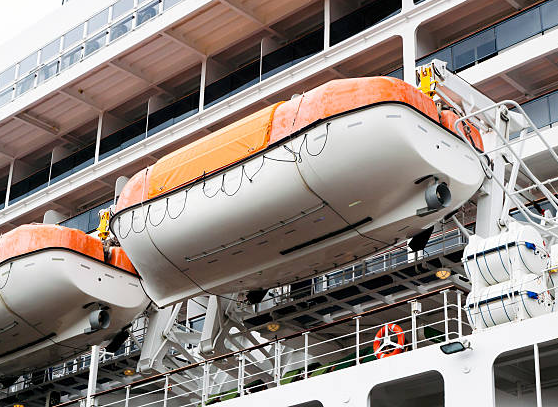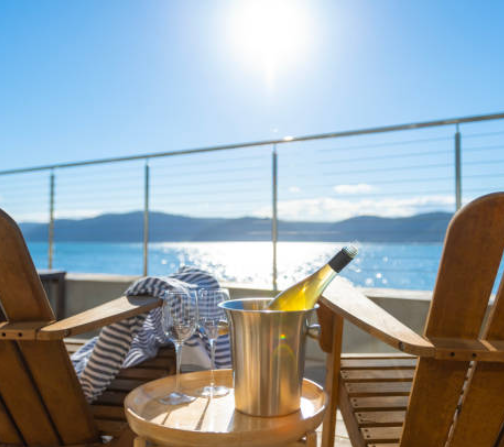
The 10 Greenest Tips for Traveling the World
December 8, 2024
Sports Tourism Rebounds After Pandemic Recession
December 24, 2024Travel has become very expensive. After the pandemic, it seems that the world is traveling again, and prices are rising. I was amazed at the heights they reached. But this is a product of rising costs and runaway demand. Everyone just wants to travel. We’re all looking for ways to escape.
Fortunately, it’s not all bad. Airfares are starting to drop again, there are more bargain search sites online, free walking tours in more cities, and more opportunities to bypass traditional travel infrastructure and integrate directly into the local lifestyle through the sharing economy.
As we navigate the post-COVID world of high prices, I’d like to share some tips and tricks on how to budget for travel this year!

1. Change Your Mindset
Changing your mindset may not be a traditional budgeting technique, but it’s still important. Keep reminding yourself that traveling is possible while taking concrete steps to make it a reality. Action begets action – even if it’s just a small step.
Start with a “yes, I can” mentality. Don’t think, “I can’t travel” – think about “What can I do today to bring my trip closer to reality?”
Life is a mental game. Do one thing a day to bring you closer to the journey, and you’ll find yourself building up unstoppable momentum.
2. Create a Savings Plan
Unless you’re Bill Gates, we all need to save more. But how do you do it? Even though life is expensive, I believe there is always a way to save more. There’s always something you can cut out. Over time, a little bit of savings can add up to a lot.
First, start by tracking your spending. Write down all the money you’ve spent in a month. Groceries, rent, eating out, Netflix – you name it. If you don’t know where your money is spent, you can’t figure out where to put it.
Next, open a savings account specifically for travel. This way, you’ll have a dedicated space to store your travel fund, and you can watch it grow. This progress will keep you motivated. Even if it’s only a few dollars a week, every penny counts. The more you save, the more you want to save.
Finally, start cutting back on expenses. Maybe it’s going to Starbucks, maybe it’s carpooling to work to save on gas, or it’s cutting back on eating out. We all have things that can be reduced.
3. Get a Discount on Your Ticket
People always tell me that one of the things that prevents them from traveling more is the cost of flights. But, let me tell you, there are a lot of offers right now.
All airlines are working hard to keep their planes full and offer plenty of deals for summer and fall travel. After all, they need to make up for a year’s worth of losses and are desperate to get people on the plane.
The key to finding cheap flights is to be flexible with your dates and destinations. If you are hell-bent on “Paris in June”, you will be forced to pay for all your flights. However, if you open it up as “France in the summer”, or even “Europe in the summer”, you will be able to find cheaper flights because you will have more leeway to test the dates and destinations.
4. Earn Points
Travel hacking, the art of collecting points and miles, is a great way to travel on a budget. By earning a points-credit card and using a few simple tricks, you can earn hundreds of thousands of miles – without any extra spending (you can even earn points just by paying rent!). These points can be redeemed for free flights, free hotel nights, and other travel rewards. Once you’ve earned your points, you can use platforms like point.me (for flights) and Awayz (for hotels) to manage your points. These platforms help you maximize your points and miles to win more free flights and hotel stays.

5. Take Advantage of the Sharing Economy
The sharing economy has spawned a plethora of new money-saving and community-building platforms that have made travel more affordable, personalized, and convenient. It’s never been easier to get off the tourist trail, mingle with the locals, and experience the rhythm of their lives.
Here are some of the best sharing economy sites to get you started:
- Trusted Housesitters – The most comprehensive website for finding housekeeping jobs. When the homeowner is on vacation, you watch the place of vacation.
- EatWith – allows you to have home-cooked meals with locals (this is the Airbnb of the food world). It always makes for interesting encounters, so it’s one of my favorite things to do.
- BlaBlaCar – A ride-sharing app that pairs passengers with verified locals who have spare seats in their cars.
- RVShare – allows you to rent motorhomes and campervans directly from locals.
6. Look for Free Ones
The world is full of amazing free travel resources that can help you save on your budget. No matter where you’re going, there’s probably a blog post on how to do and visit there for free or cheap. Someone has been there and written about it!Make the most of all of this to help you plan your trip.
My favorite search term is “free things to do in X.” You’ll always get a result!
Also, don’t be afraid to walk into a hostel – even if you don’t live there – and ask them what they have for cheap. Their clients are budget-sensitive, so they always know what to do and where to go for very little money.
7. Stick to Public Transportation
If you’re on a budget, skip taxis and rideshare services like Lyft or Uber. Unless you can reduce costs by carpooling with other passengers, public transportation will be the most cost-effective way to get around. Not only will it save you money, but you’ll also get to know how the locals travel.
Google Maps can often give you a basic overview of public transport options and available prices. You can find information about day and/or multi-day tickets from local hostel/hotel staff (as well as local tourism offices).

8. Take Advantage of Your Local Tourist Office
The local tourist office has a wealth of knowledge. They exist only to provide you with information about attractions and activities. They often offer massive discounts that aren’t available elsewhere and can also keep you up-to-date on local activities, free tours, and the best places to eat. They can also help you find public transport discounts and/or multi-day passes.
Don’t skip your local tourist office! they’re a grossly underutilized resource.
9. Get Cheap Accommodation
Accommodation is one of the biggest fixed costs for travelers, so reducing that cost can result in significant savings on road costs. I’m sure if the barn were the cheapest accommodation they could find, a lot of backpackers would sleep in the barn!
Here are the websites I use to book cheap accommodations:
- Booking.com – Used to find budget hotels and guesthouses.
- Hostelworld – The best website to find hostels.
- Agoda – Another great hotel website dedicated to Asia.
- Hotel Tonight – Offers last-minute discounts on hotel stays.
10. Eat Cheap
Aside from accommodation, food is one of the biggest travel costs. After all, everyone needs to eat. But there are many cheap ways to eat it:
- Go grocery shopping and prepare your own meals
- Shop at the local market
- Use the app to find deals (Yelp, Seamless, LaForchette, TasteCard, RiceBowl)
Also, use the five-block rule. There seems to be a magical wall surrounding the tourist area. Most people don’t cross it. In my experience, if you walk five blocks in any direction from the main tourist area, you’ll end up losing the crowds and finding local restaurants.
In my experience, tourist restaurants don’t care about quality because those tourists don’t come back. Residents do care, so the establishments that serve them need to be better and more affordable, or they will go out of business. These are the places you want to go to eat. Use the above resources to find a place where the locals eat and avoid eating crappy food!
11. Travel like Life
Most people in your destination don’t spend as much money a day as tourists do. Neither will you in everyday life. So take that mindset with you. Walk, take public transportation, go to the grocery store, spend the day in the park and look for deals. Do what you do every day at home to keep costs down.
Too many people fall into the mindset that when they hit the road, they just need to spend money, spend money, spend money, spend money. This is simply not true. There is no law that says you have to spend more. Budget wisely – just like at home. This will help you save money and prevent you from going home early (and going bankrupt).



